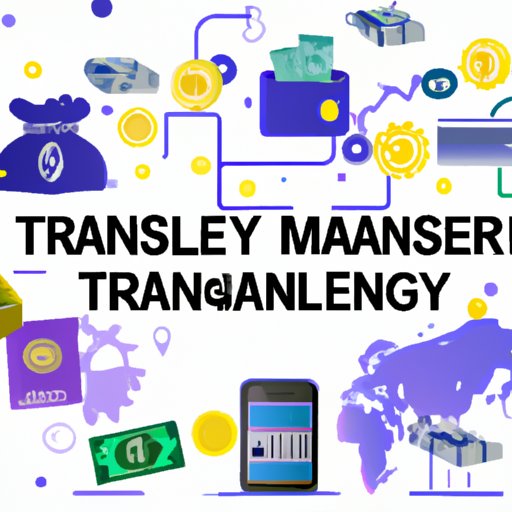Introduction
A money transfer business is an entity that facilitates the transfer of money from one person or company to another. It can involve domestic transfers within a country’s borders or international transfers between two countries. As this type of business has become increasingly popular in recent years, there are now more opportunities than ever to start your own money transfer business.

Research the Regulations and Licensing Requirements for Money Transfer Businesses
Before you can launch your business, you need to understand the laws and regulations governing money transfers in your jurisdiction. Depending on where you’re located, you may need to obtain special licenses in order to operate legally. Researching the applicable laws and regulations is essential for ensuring compliance with all relevant rules and regulations.
In addition to researching the applicable laws, you’ll also need to understand the registration process. In some cases, you may need to register as a money services business (MSB) with your local or state government. You may also be required to obtain a money transmitter license from the appropriate financial regulator.

Develop a Comprehensive Business Plan
Once you’ve researched the applicable regulations and licensing requirements, you’ll need to develop a comprehensive business plan. A business plan should include an analysis of your target market, a budget, and goals and objectives. You’ll also need to identify potential sources of revenue and create a strategy for marketing your services.
When developing your business plan, it’s important to understand who your target customers are and how you can best serve them. Conducting market research can help you identify the needs of your target audience and determine the best way to meet those needs. Additionally, creating a budget will allow you to better manage your finances and ensure that your venture is financially viable.
Establish a Secure Payment Processing System
Once you’ve developed a business plan, you’ll need to establish a secure payment processing system. Choosing the right payment processor is essential for ensuring that all transactions are secure and compliant with applicable laws and regulations. There are a variety of payment processors available, so it’s important to do your research and select one that meets your needs.
In addition to selecting a payment processor, you’ll also need to ensure that all transactions are secure. This means implementing the necessary security measures, such as encryption technology, fraud prevention tools, and identity verification systems. You’ll also need to ensure that all customer data is stored securely and in compliance with applicable laws.
If you intend to offer international money transfer services, you’ll need to consider the additional complexities involved. International payments come with additional regulations and fees, so you’ll need to make sure that you understand all of the applicable rules and regulations.
Partner with Banks and Financial Institutions
In order to offer money transfer services, you’ll need to partner with a bank or other financial institution. Finding a reputable partner is essential for ensuring compliance with all applicable laws and regulations. When negotiating fees and commission rates, it’s important to remember that banks tend to have higher overhead costs than other types of businesses.
In addition to negotiating fees and commission rates, you’ll also need to comply with the bank’s regulations and policies. This includes providing the necessary documentation and meeting the bank’s standards for customer due diligence. Complying with bank regulations will ensure that your business is able to offer money transfer services in a safe and secure manner.

Market Your Services to Potential Customers
Once you’ve established a secure payment processing system and partnered with a bank, you’ll need to market your services to potential customers. Developing an effective marketing strategy is essential for ensuring that your business reaches its target audience. Utilizing digital marketing platforms, such as social media, email, and search engine optimization, can help you reach a wider audience.
Additionally, networking with industry professionals can be a great way to promote your services. Attend conferences, join industry associations, and build relationships with potential customers. By building relationships with industry professionals, you can increase brand awareness and generate more leads for your business.
Conclusion
Starting a money transfer business can be a lucrative endeavor. By researching the applicable laws and regulations, developing a comprehensive business plan, establishing a secure payment processing system, partnering with banks and financial institutions, and marketing your services, you can launch a successful business. With the right strategies in place, you can achieve success in the money transfer industry.
Call to action: If you are interested in starting a money transfer business, contact us today to learn more about our services and how we can help you get started.
(Note: Is this article not meeting your expectations? Do you have knowledge or insights to share? Unlock new opportunities and expand your reach by joining our authors team. Click Registration to join us and share your expertise with our readers.)
